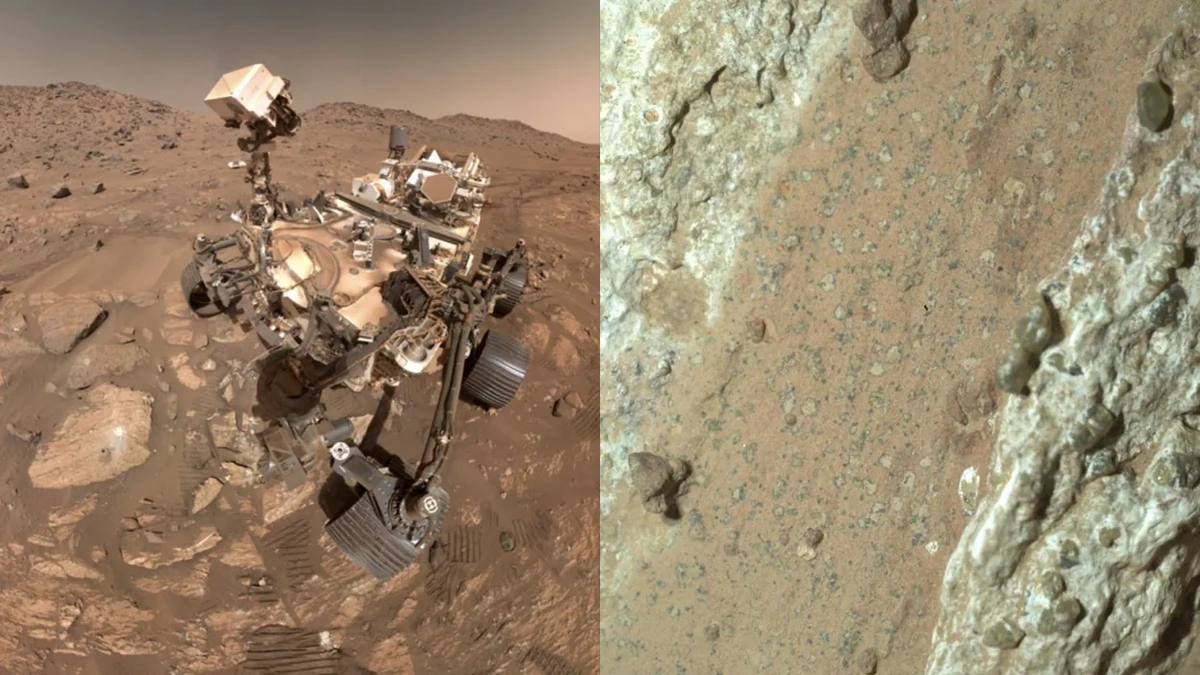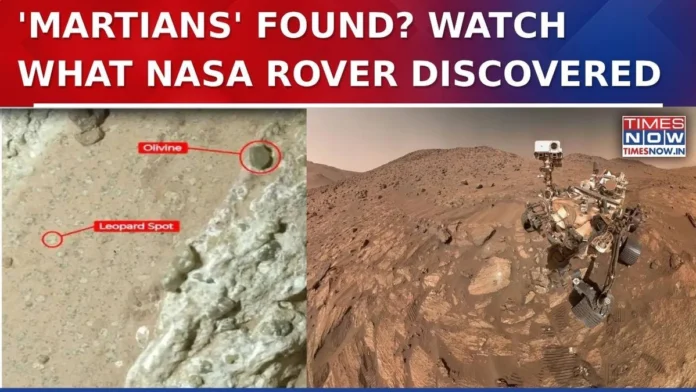The internet’s buzzing. Headlines scream, ” Life on Mars !” or “Martian Organisms Discovered!” But before you start packing your bags for a one-way trip, let’s take a deep breath. What’s really going on here, and why does it matter to you and me, sitting here on Earth?
Here’s the thing: the possibility of past or present microbial life on Mars has captured our collective imagination for decades. And while recent findings are exciting, they’re also incredibly complex. Let’s dive into the why behind the headlines – the implications of potentially discovering life beyond Earth and what this says about our place in the cosmos.
Why Martian Microbes Matter More Than You Think

Okay, so tiny bugs on another planet. Big deal, right? Wrong. Here’s why this is potentially revolutionary. If we find definitive evidence of even the simplest lifeforms on Mars , it suggests that life isn’t unique to Earth. Think about that for a second. That single discovery would rewrite biology textbooks, change our understanding of the universe, and profoundly impact philosophy and religion. I initially thought this was straightforward, but then I realized, the implications are so huge it’s difficult to fathom.
The reason this matters so much is that it suggests that the origin of life is not some freak accident. It might be a process that occurs relatively frequently under the right conditions. And if it happened on both Earth and Mars, independently, that boosts the odds of it happening elsewhere in our solar system or on planets orbiting distant stars.
But and it’s a big but we need to be absolutely sure . The scientific community has learned harsh lessons from previous false alarms. Remember the Martian meteorite ALH84001 that caused a stir in the 90s? Claims of fossilized bacteria were ultimately debunked. So, healthy skepticism is crucial. According to NASA’s Astrobiology Program , careful contamination control and thorough testing of Martian samples are key to preventing false positives.
The Search for Evidence | Where Are We Now?
So, what’s the current state of play? The Mars Perseverance rover , is equipped with state-of-the-art instruments designed to search for biosignatures – indicators that life either exists or once existed. It’s currently exploring Jezero Crater, which scientists believe was once a lake billions of years ago. And this is important because, you know, water is usually good for life.
Perseverance is collecting rock and soil samples that will eventually be returned to Earth for detailed analysis. And here’s the thing, these samples could hold the key to unlocking the secrets of Martian life. It’s a long process, but the payoff could be immense.
What fascinates me is the painstaking effort involved. Scientists are employing multiple methods – from microscopy and spectroscopy to chemical analysis – to identify potential biosignatures. And because each method has its limitations, they need to be incredibly careful to avoid drawing premature conclusions. I find it truly fascinating how all these things link together, don’t you?
This rigorous approach is crucial because distinguishing between biological and non-biological processes can be tricky. For example, some geological formations can mimic the appearance of fossilized microbes. So, scientists need to rule out all other possible explanations before declaring that they’ve found evidence of ancient martian life .
The Ethical Questions | Should We Even Be Looking?
Let’s be honest – the search for life on other planets raises some profound ethical questions. If we do find life on Mars, what are our responsibilities? Do we have the right to disturb it, even if it’s just microbes? Should we leave Mars alone and let it evolve on its own terms? I think it’s a question that gets often overlooked.
These aren’t just philosophical debates. They have real-world implications. For example, planetary protection protocols are in place to prevent Earth microbes from contaminating Mars and vice versa. But these protocols aren’t perfect, and accidents can happen.
And here’s where it gets really interesting. Some argue that we have a moral obligation to protect Martian life, even if it means limiting our exploration of the planet. Others contend that the potential scientific benefits outweigh the risks. There’s no easy answer, and these are questions that we as a society need to grapple with.
It’s also important to consider the potential impact of discovering life on our own self-perception. It could be both humbling and exhilarating. On the one hand, it would show that we’re not the center of the universe. On the other hand, it would open up new possibilities for understanding the origins and evolution of life.
The Future of Mars Exploration and the Search for Life
The search for past or present life on Mars is only just beginning. Future missions will build on the work of Perseverance, with plans to drill deeper, explore more diverse regions, and conduct more sophisticated analyses. As per the guidelines mentioned in the information bulletin, the next major step is the Mars Sample Return campaign, which aims to bring the samples collected by Perseverance back to Earth in the early 2030s.
And it’s not just NASA that’s involved. Other countries, including China and the European Space Agency, have their own ambitious Mars exploration programs. It’s a global effort, driven by the desire to answer one of humanity’s most fundamental questions: Are we alone?
But what if we never find definitive evidence of life on Mars? Would that mean that life is rare or unique to Earth? Not necessarily. It could simply mean that we haven’t looked in the right places or that we haven’t developed the right tools to detect it. The universe is vast, and there’s still so much that we don’t know.
Maybe, and this is just a thought, we’re looking at it all wrong. What if potential biosignatures aren’t what we expect? What if the origin of life is something completely different, radically changing everything we assume? It’s questions like these that keep me up at night!
Is Evidence of Life on Mars Possible? The Verdict is Still Out
The question of whether evidence of life on Mars exists remains unanswered. While tantalizing hints and promising leads have emerged over the years, definitive proof remains elusive. As technology advances and our understanding of Mars deepens, the chances of finding that proof increase. But it’s important to temper excitement with a healthy dose of skepticism. This is science, after all, and it’s a process of constant questioning and refinement.
The search continues. And in the meantime, the possibility of life beyond Earth will continue to inspire us, challenge us, and remind us that we are part of something much larger than ourselves. The journey of discovery is just as important as the destination itself.
FAQ | Your Burning Questions About Life on Mars, Answered
What kind of life could exist on Mars?
Scientists generally believe that if life exists on Mars, it would most likely be in the form of microbes. But there is still a remote possibility of finding evidence of more complex organisms.
How are scientists searching for life on Mars?
Scientists are using rovers, landers, and orbiters to search for biosignatures – indicators that life either exists or once existed. These biosignatures can include certain chemical compounds, fossilized microbes, or unusual geological formations.
What if we find life, then what?
The immediate next step would be intense verification. Further investigation will then be conducted to study this lifeform and it’s origin.
Is it likely that the red planet has life on it?
It is difficult to say for sure. The possibility remains, but it’s important to remember that no definitive proof has been found yet. The search continues!
So, the next time you see a headline about life on Mars , don’t just take it at face value. Dig deeper, ask questions, and remember that the story is far from over.

